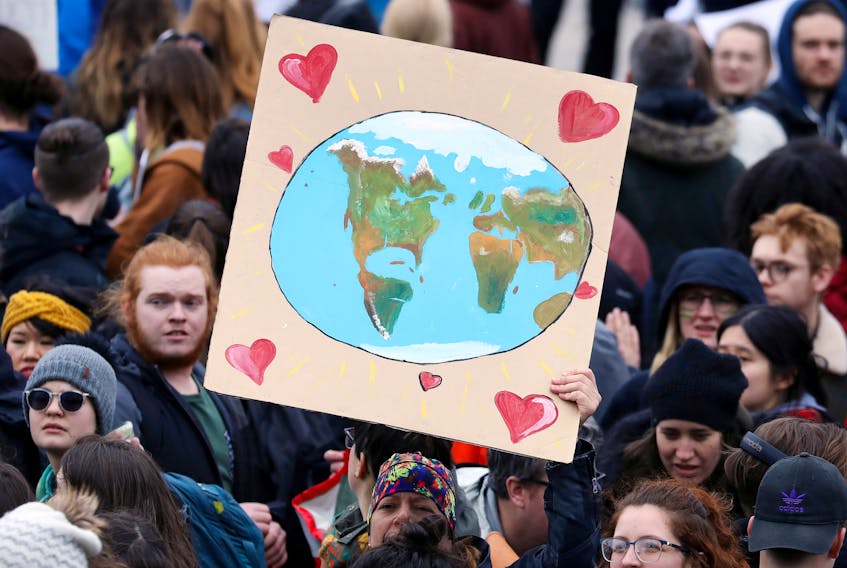The Liberal federal government’s record on addressing the climate crisis is, charitably, uneven, leaving a growing share of the electorate for whom the crisis has become the deciding issue with a bit of a Hobson’s choice.
Do they vote for the Liberals in hopes that the government’s action on the climate crisis will catch up to its rhetoric? In other words, take what’s on offer.
Or, do they take their votes to the Greens or the NDP? Both propose significantly more aggressive action on the crisis than we’ve seen — or even heard — from the Liberals. But neither of those parties has a hope of forming a government.
The fragmentation among two or three parties of what, for word economy, we’ll call “climate voters” could lead to a Conservative victory. The Conservative climate plan is, again charitably, mostly fiction. So a Conservative government effectively leaves climate voters with nothing.
The outcome of the calculations of this voting block could very well be the deciding factor in the election. It also defines the challenge ahead for Justin Trudeau’s Liberals. They need to convince climate voters that, in a second term, the Liberals will become the climate warriors they pretended to be in 2015.
It’s a hard sell. The Liberals are saddled with a four-year record of climate inertia marked mostly by an ongoing fight with Conservative premiers over one aspect of their plan — the carbon tax, or as the Liberals prefer, a “price on pollution.”
The government’s purchase of the Trans Mountain pipeline so the thing might get built and boost Alberta’s oil and gas sector is seen as a sellout by many for whom the environment is the top issue.
For the Greens and the NDP, the pitch is simple. Elect enough Green or NDP members of Parliament to hold what could very well be a minority government’s feet to the fire, forcing real action to combat the crisis.
The Greens have a decided advantage over the NDP on the issue. The Green brand is, well, green. They are first and foremost seen as the party of environmentalists. They’ve attempted to broadened the public perception of the party beyond that single issue, but the environmental brand is finally an asset.
The NDP is hobbled by an inability to get its environmental and other messages across, along with a myriad of other problems. It’s short on cash and its leader, Jagmeet Singh, just hasn’t caught on with Canadian voters.
How much of the voter reluctance to consider Singh is rooted in racism is impossible to gauge, but it is in the mix. That ugly reality was confirmed when one of the former New Democrats that defected to the Greens in New Brunswick cited voters’ antipathy to the NDP leader with brown skin and a Sikh turban as part of the reason for his defection.
The Greens don’t have a lot of cash either, nor do they have a political organization across the country, but when it comes to climate voters, they don’t need much of a sales job. The brand does it for them.
As for the Conservatives, they know that climate voters aren’t coming their way, so they’ll stick with the climate plan they have and continue to insist it’s a realistic program that will have positive effects, even while expects pan it.
The Conservative path to government lies in the fragmentation of the so-called progressive vote, noted above. Those voters obviously include climate voters, and if it fragments, Conservative candidates will win races in Atlantic Canada, Quebec, Ontario and British Columbia because of the split vote on the left. They’ve already got Alberta, Saskatchewan and most of Manitoba in their pockets.
All of this makes Prime Minister Trudeau’s decision to forego this week’s Maclean’s debate, and a later Monk debate on foreign policy, a big risk.
Trudeau has a trust deficit, well-earned by promises unkept, a poor grade on climate action and the SNC-Lavalin affair, when his “new kinds of politics” appeared to be old-school self-interest.
If the Liberals are to win this election, the prime minister needs to re-establish some level of trust with climate voters and others on the centre-left and left.
Staying away from large-audience events like the Maclean’s and Monk debates and handing the other party leaders free range to highlight his government’s failures, unopposed, seems likely to cause, not limit, the kind of voter fragmentation that would be the Liberals’ undoing.









